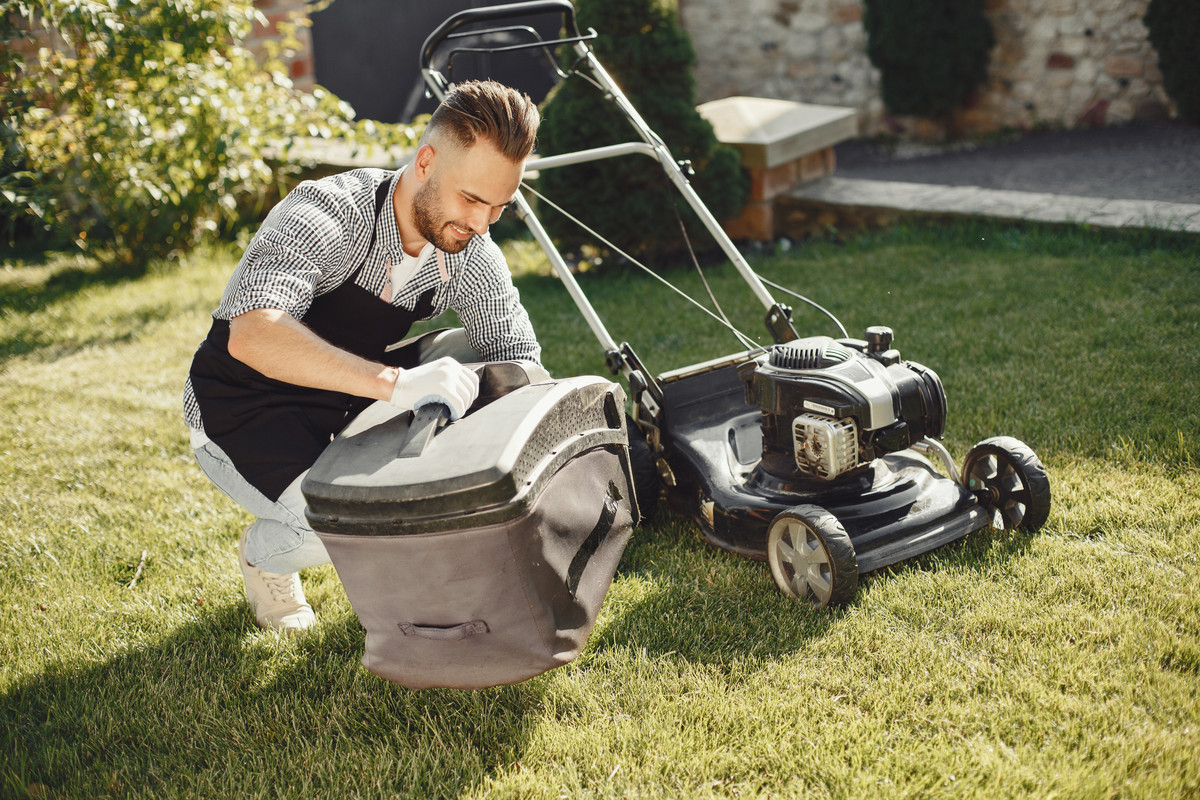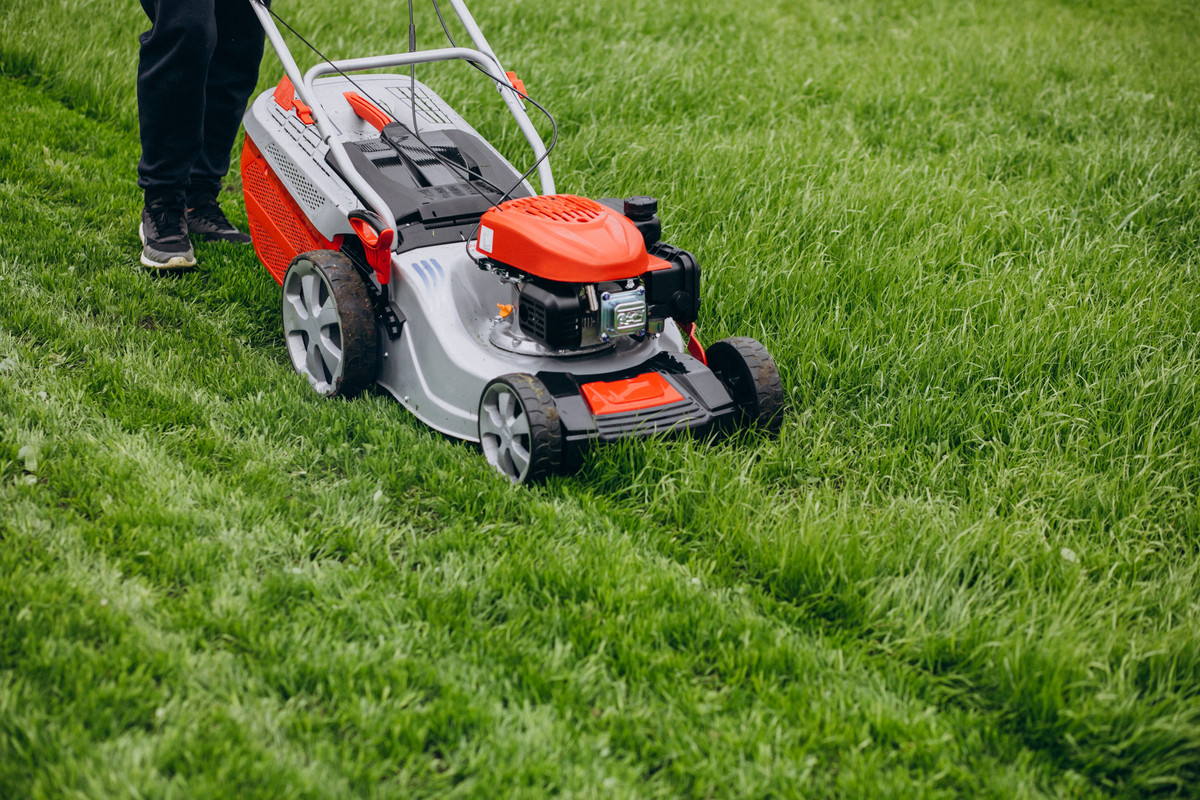Welcome to this comprehensive guide where we will unfold the advantages of regular lawn mowing and how it contributes not just to maintaining a healthy yard, but also elevates its aesthetic appeal. Every yard owner yearns for a lush, well-groomed yard that turns heads, and our deliberation will focus on how simple, regular lawn mowing can contribute to this objective. Whether it's about enhancing the lawn's density, combating the pesky pests, or boosting the curb appeal of your property, the role of consistent mowing is undeniable.
The Impact of Regular Lawn Mowing on Yard Health:
A common misperception amongst many yard owners is that mowing entails merely cutting off the grass blades to render a neat look. The truth, however, is that regular mowing has a profound impact on the yard's health. When mowing is done consistently, your grass is trained to grow more densely, thereby offering less room for weeds to sprout.
Moreover, a denser yard promotes moisture retention in the soil which is essential for the vitality of your grass. Additionally, mowing reduces habitat for pests, thereby shielding your yard against diseases. For instance, the "Healthy Yard Program" report from Cornell University suggests that a regularly mowed lawn reduced tick populations by 50-80% compared to unmanaged grass. These benefits coalesce to craft a healthier yard that radiates vibrance.

The Aesthetics of a Well-Maintained Lawn:
Beyond the health of the yard, regular mowing is a vital factor driving the aesthetic value of your property. An appealing lawn serves as an introductory snapshot to your home and significantly enhances the curb appeal of your property. According to a Michigan State University study, well-maintained landscapes can boost a property's value by 5 to 11% compared to properties with average landscapes.
A well-maintained lawn also exudes a sense of dedication to the property's upkeep and, unlike an unruly yard, creates a welcoming atmosphere for visitors. The aesthetic dividends of regular lawn mowing are undeniable, and the effort invested yields quantifiable rewards.
Understanding the Mowing Process:
Mowing may seem like a straightforward task, but there's more to it than meets the eye. Proper mowing involves careful planning, precise execution, and a vibrant lawn is the testimony of well-performed mowing; anything less can result in damage to your lawn and open the door to diseases. One of the most common mistakes is cutting grass too short, also known as scalping. Scalping exposes the soil to sunlight, causing it to dry out and making your yard more susceptible to pests and diseases.
A rule of thumb for mowing is to avoid cutting more than one-third of the grass blade at a time. This helps in preserving the moisture in the soil and maintains the overall health of the lawn.
Choosing the Right Lawnmower:
The myriad of lawnmowers available today can make the task of choosing the right lawnmower seem daunting. However, if you're clear on the size of the lawn, the terrain, and your specific requirements, demystifying the perfect lawnmower becomes an attainable task. Walk-behind mowers are perfect for small to medium-sized lawns, while a riding mower or lawn tractor would be better suited for larger spaces.
Electric and battery-powered mowers are quieter and more environmentally friendly, but they may lack the power of a gasoline mower. Look at features like the adjustment of cutting heights, mulching capabilities, and bagging options. Choose one that meets your needs within your budget.
Best Mowing Practices for Optimum Yard Health:
The timing of your mowing can also significantly impact the health and look of your yard. Early morning mowing can leave your grass susceptible to disease due to damp dew, and midday mowing can stress the grass due to peak temperatures. Thus, the best time to mow is in the late afternoon or early evening when the grass is dry, and temperatures are cooler.
Mowing in alternating patterns every time can also reduce compaction and help the grass stand more upright for an even cut. Finally, maintaining the mower in top form, with sharp blades, ensures a clean cut that fosters good yard health.
The Environmental Impact of Lawn Mowing:
There's no denying the environmental impact of lawn mowing. Traditional gas-powered mowers emit pollutants and contribute to noise pollution. However, significant strides have been made in producing greener mowers. Electric and battery-powered mowers, for example, have a lesser environmental footprint.
Moreover, adopting practices like mulching your grass clippings instead of disposing of them can return the necessary nutrients to the soil, reducing the need for excessive watering and fertilizers. Using a manual reel mower is another eco-friendly option that also provides an excellent exercise opportunity.
DIY vs Professional Lawn Mowing:
While mowing your lawn can be a rewarding task and a great workout, it does consume time and energy. For individuals with busy schedules, or large lawns, professional lawn care services might be a more realistic option.
Engaging professionals not only rids you of the mowing chore but their expertise also helps in maintaining the optimal health and look of your yard. However, these services do come at a cost, and the pursuit of seeking professionals must be balanced against the expense, your availability, and the pleasure you derive from tending to your yard personally.
Conclusion:

The effects of regular lawn mowing run deeper than mere good looks. With each mowing, you are actively contributing to a denser, healthier, and more appealing yard. Armed with the proper knowledge and mowing practices, you can elevate your lawn to its full potential, and provide a welcoming outdoors space for your family and guests.
FAQ:
How often should I mow my lawn?
The frequency of mowing depends on the type of grass and its growth rate. Typically, aim to not cut more than one-third of the grass blade at a time.
That is the best time of the day to mow the lawn?
The best time to mow is in the late afternoon or early evening when the grass is dry, and temperatures are cooler.
How do I choose the right lawnmower?
Choosing a lawnmower depends on the size of your lawn, the terrain, and your specific requirements. Understand the features, benefits, and constraints of different types of mowers before deciding on one.
How should I handle lawn clippings?
Instead of throwing lawn clippings away, consider mulching them. This process returns the essential nutrients to the soil and reduces the need for watering and fertilization.
How do I maintain my lawnmower?
Regular checks and cleaning, sharpening the blades, changing the oil, replacing spark plugs, and air filter are some of the simple ways to maintain your lawn mowing Mount Martha and keep it in top form.
For more information about us, please refer to the details below:
Business Name: My Hardy Yardy
Address: 4 Bokissa Drive Frankston VIC 3199 Australia
Tel: 0417 640 008
Email: info@myhardyyardy.com.au